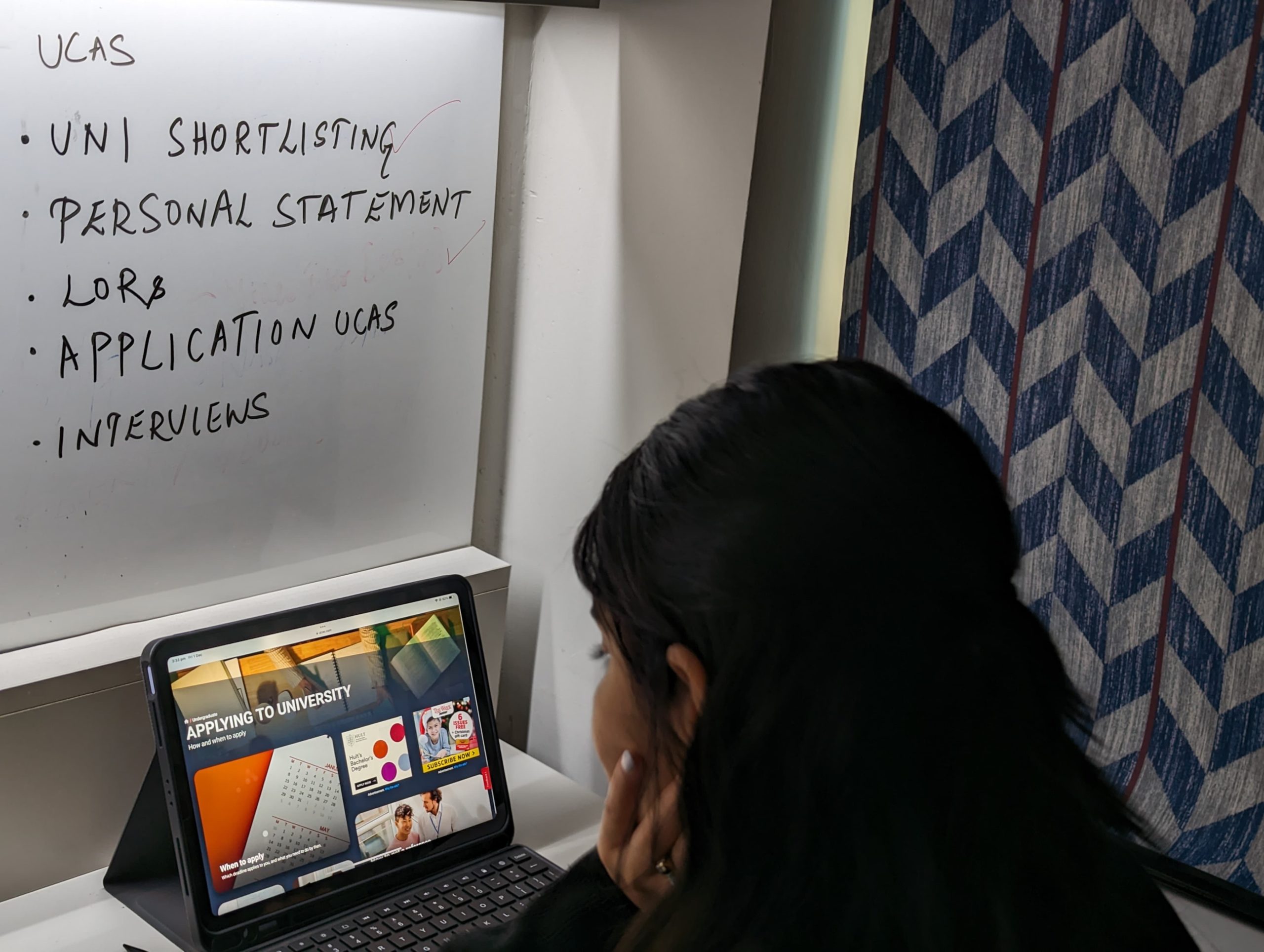As an international student at the University of Exeter, I am here to guide you through the exciting yet sometimes daunting process of applying to university. Whether you’re a high school student just starting to explore your options or a graduate seeking a new academic adventure, this guide will equip you to make informed decisions and craft a compelling application that’s as unique and amazing as you are!
CHOOSING THE UNIVERSITY
1. Compare Your Courses
The course itself is the heart of your university experience and you can avoid any regrets by choosing the right subject (it isn’t as overwhelming as it seems). Make sure to assess if the programme’s curriculum and teaching methods align with your academic interests and find out what the most employable degrees are. Try to go as in-depth as possible while doing this, like evaluating your elective modules. Check for research opportunities, industry collaborations, and internships in the department.
2. University Reputation
Overall world university rankings can give you an idea of how the university compares with others in terms of education quality and help you narrow down your choices. However, this should NOT be your principal deciding factor. They do not consider parameters like financial requirements, location, and culture, which could also impact your decision.
The University of Oxford may be at the top of all league tables, but did you know that the University of Exeter is well-known for its Business and Marketing programmes, and UCL is one of the best unis for studying criminology? The choice you make is only based on what’s right for YOU.
3. Considering Other Experiential Factors
This entire process is a lot like picking an ice cream sundae; there’s more to it than just the flavour (course). You’ve got to consider the toppings (culture, student life), the price tag (tuition fees), and the aftertaste as well!
Entry Requirements
- An important area to consider would be the entry requirements for the programme. As an aspiring digital marketer with a background in engineering, the process wasn’t as straightforward as I hoped it would be. Many universities seemed to have a thing for applicants with degrees in related fields, which left me feeling like a bit of an oddball. But hey, I have three+ years of solid work experience under my belt, and I wasn’t about to let this stand in my way. So, I let my personal statement do the talking!
- English language proficiency is an essential aspect of university admissions for international students, so make sure to find out what tests are accepted by each university.
The University Experience
Speak to a few friends, alumni, and look at reviews online to get first-hand perspectives about the campus, the location of the university, and the extracurriculars. It’s important to find a campus culture that you feel comfortable and welcome in. Consider the climate, the proximity to family and friends, and the opportunities for internships and jobs.
One reason for me to choose Exeter is its gorgeous campus and the city’s beautiful location between the coastline and the valley!
Also, does the university have clubs and societies you’d love to be involved in?
It’s always best to visit the campus in person if you can. If not, try attending a campus event or open days in your city. The uni representatives are sure to give you valuable insights into the experience.
Scholarships & Funding
If the university offers good scholarships that can support your study here, that’s definitely a plus point. Financial aid opportunities have specific application deadlines, so stay on the lookout for these!
Pro Tip: It may be tempting to cast a wide net and apply to a multitude of universities. However, this approach can prove to be counterproductive. Take it from me, who initially had around 30 universities in my list which was inherently stressful and did no good at all! At the end of your research, make sure that you have a maximum of 6 to 8 good universities that you want to apply to. This will allow you to invest your time and effort more strategically on putting together strong applications.
APPLYING TO THE UNIVERSITY
1. Personal Statement/Statement of Purpose
Once you’ve shortlisted the universities that you want to apply to, it’s time to write your personal statement. Firstly, let’s dispel the myth that SOPs are meant to be dry and formal or a mere rehash of your resume. While it may require a professional tone and focus on your academic qualifications and work experience, it should also reflect your personality, demonstrate your passion for the subject, and most importantly, convince the admissions office that you have the potential to succeed in their programme.
One thing that really enhanced my SOPs was the personalisation i.e. I tailored each personal statement to the university I applied for. I took some time out to research the university’s history, values, reputation, programmes, and faculty as well.
2. References and Recommendations
Along with your academic documents and SOP, you will need to submit at least two solid letters of recommendation (LORs) that are written by your professors, colleagues/managers, coaches or mentors who have witnessed your brilliance first-hand. They’re like your personal cheerleaders!
3. Interviews
So, you’ve submitted your UCAS application, your fingers are crossed tighter than a pretzel, and now you’re anxiously awaiting the verdict. For some, there’s always one more hurdle to cross, and that’s the university interview.
Admission interviews (face-to-face or remote) are conducted by universities for some students to assess their credibility and suitability for the programme. You may be asked basic questions such as your reason for choosing this course over other universities’, your experience in the field, and situational questions related to your programme.
For more info: https://www.exeter.ac.uk/study/termsandpolicies/interview/
THAT’S IT!
Applying to universities can seem like a big step and it is competitive, but with a lot of planning and a smile, you’ll breeze through. Just remember to start early, do your research, and be yourself through it all.

